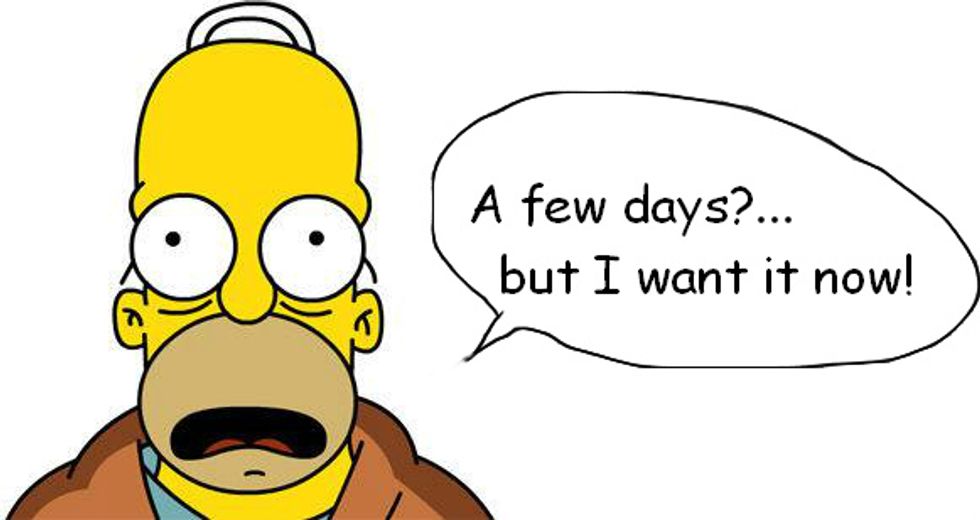At the beginning of the semester, I made the best and worst decision. I bought an ultra-plush black leather couch.
I should have realized my mistake when I watched my friend barely squish my couch in his pick-up truck, lug it up 3 flights to my apartment, sprawl across it, and vow to turn it into his new bed. I should have realized it when I noticed that the couch was large enough to accommodate my friend’s entire 7-foot form. I should have realized it when I found myself sinking into it, my thoughts of finance, business law—especially business law--and event planning slowly drifting away with every moment on those plush seat cushions. I should have realized it when the couch became part of my daily routine, when I marketed my apartment with the couch as the central focus, when the couch took priority over my homework, studying, and friendships.
This issue doesn’t pertain to only me; it’s a general occurrence. The laziness goes on—starting with hitting the snooze button, playing FIFA over studying for exams, procrastinating like there’s no tomorrow, attending class in sweats and slides, eating microwavable dinners rather than cooking your own meals, watching 12 episodes on Netflix in one sitting, and taking naps at 3 PM in the afternoon. Maybe you have your own couch, your own hideout complete with comfort food and blankets.
Why are we so lazy? Why do we prefer laziness over productivity, over accomplishing important tasks?
The answer is simple: we want instant gratification.
We’ve been lazy for years. Our nomadic ancestors had to conserve energy to fight for survival, whereas expending energy could exhaust them too much before unexpected attacks. Without modern conveniences such as texting and transportation, it didn’t make sense to plan beyond short-term gratification. Over time, we evolved to utilize minimal effort.
Long term goals can be oppressive because they involve obstacles. To achieve a long-term goal, you need patience, brain power and discipline.When analyzing the needed inputs, the outcomes don’t always look so appealing.
When scanning the multitude of inputs, we sometimes lose confidence in our ability to complete them. Will this be too hard for me? Will people dislike my efforts? Will I be ashamed of my own efforts? Will this take too long? It’s even harder when we receive no feedback at all, when we work on a task for a long period of time with no idea on how it will turn out.
Think of that exam you have next week. You’ve probably calculated your grade in the class and realized that you need a 75% to keep your C+ and a 90% to get a B. The 75% seems all too easy; you can sit on your couch (which is most likely not as nice as mine), bake cookies, and go to Fats 3 nights in a row. Your GPA is good enough to where a C+ won’t hurt. But a B means Honors Graduation, more job opportunities, and a bigger cushion for harder classes down the line. Ask yourself: Which means more to you--the short-term or the long-term?
Laziness isn’t always a bad thing. Laziness teaches you to delegate tasks to team members and therefore trust others more, to search for more efficient ways of accomplishing tasks and to mitigate your anxiety. Laziness also provides an outlet for creativity by allowing your mind to wander to otherwise untouched subjects. For instance, one of my friends avoids studying and designs software instead. The gratification from designing the software beats the benefits of studying for the exam.
Through promoting my laziness, the couch has ironically spurred productivity. The couch has reduced my stress, allowing me to cram for exams immediately after. It has provided a bed for my roommate for 2 weeks, among other random visitors. Not to mention, I am currently sitting on the couch right now as I write this article.
Laziness isn’t an obstruction, but a natural trend. And like all natural occurrences, we must accept it as part of our daily routine, we must embrace it, we must learn to control it.
Maybe an ultra-plush couch will give you the ultra-plush motivation you need.





















